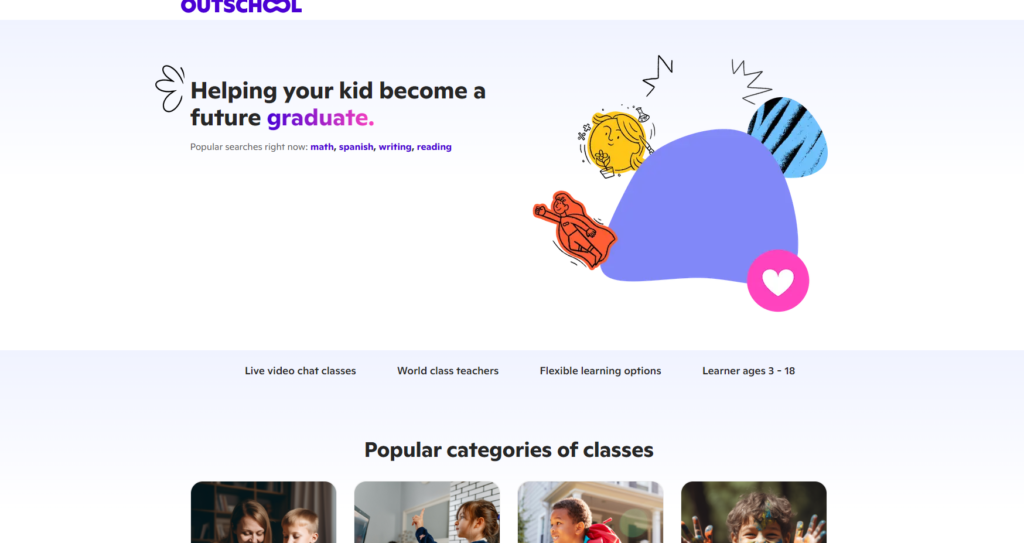Introduction
In recent years, the landscape of education has undergone a significant transformation with the advent of online teaching platforms. This shift has not only revolutionized the way people learn but has also opened up lucrative opportunities for educators to earn money while sharing their knowledge and expertise. In this comprehensive guide, we will explore the top online teaching platforms that offer exciting prospects for teachers looking to monetize their skills.
Understanding Online Teaching Platforms
Online teaching platforms have emerged as virtual hubs where educators and learners converge to engage in educational pursuits. These platforms facilitate the delivery of a wide range of courses across diverse subjects, catering to learners of all ages and backgrounds. By harnessing the power of technology, online teaching platforms have democratized education, making it accessible to anyone with an internet connection.
Benefits and Opportunities
One of the primary advantages of online teaching is the flexibility it offers to both educators and learners. Teachers have the freedom to create and deliver courses on their terms, while students can access learning materials from anywhere in the world. Additionally, online teaching platforms provide a global audience, allowing educators to reach learners beyond geographical boundaries.
Top 10 Online Teaching Platforms
Udemy stands out as one of the leading online learning platforms, boasting a vast library of courses on various subjects. Educators can create their courses on Udemy and earn money based on course enrollments.
Coursera collaborates with top universities and institutions to offer accredited courses to learners worldwide. As an instructor on Coursera, you can contribute to existing courses or develop your own, earning recognition and compensation for your expertise.
Skillshare is a community-driven platform that focuses on creative and practical skills. Teachers on Skillshare earn royalties based on the minutes watched by premium members, making it a lucrative option for creative professionals.
Teachable empowers educators to create and sell their online courses, providing a user-friendly platform with customizable features. With Teachable, teachers can monetize their expertise and build a thriving online teaching business.
Formerly known as Lynda.com, LinkedIn Learning offers a vast library of video tutorials and courses on professional skills. Instructors on LinkedIn Learning can contribute to existing courses or develop new ones, reaching a global audience of professionals.
Outschool specializes in live, online classes for children and teens, covering a wide range of subjects. Teachers on Outschool can design and teach their classes, setting their schedules and rates.
edX is a nonprofit platform that offers online courses from top universities around the world. Educators can contribute to existing courses or create new ones, earning money through enrollments and certifications.
VIPKid connects English-speaking teachers with Chinese students for one-on-one online English lessons. With VIPKid, teachers can set their schedules and earn competitive rates for each class taught.
Wyzant is a tutoring marketplace that connects students with qualified tutors in various subjects. Educators on Wyzant can set their rates and schedules, earning money for each tutoring session conducted.
Chegg Tutors provides on-demand tutoring and homework help for students of all ages. Teachers can choose the subjects they want to teach and work with students on a flexible schedule, earning money for their expertise.
Factors to Consider
Before diving into the world of online teaching, it’s essential to consider several key factors that can impact your success and satisfaction as an educator. These include your subject expertise, the reputation of the platform, income potential, and available teaching resources.
Pros and Cons Online Teaching Platforms to Earn Money
While online teaching platforms offer numerous benefits, it’s essential to consider both the advantages and disadvantages before diving into this field.
Pros
Flexibility: One of the most significant advantages of online teaching platforms is the flexibility they offer to both educators and learners. Teachers can create and deliver courses at their convenience, while students can access learning materials anytime, anywhere.
Global Reach: Online teaching platforms provide access to a global audience, allowing educators to reach learners from diverse backgrounds and geographical locations. This global reach opens up new opportunities for collaboration and cultural exchange.
Income Potential: Online teaching platforms offer various monetization options for educators, including course sales, subscription models, and affiliate programs. With the right strategy, teachers can generate a substantial income by leveraging their expertise and attracting a large student base.
Diverse Content: Online teaching platforms host a wide range of courses across diverse subjects and skill levels. This diversity allows educators to explore new topics and reach audiences with varied interests, expanding their teaching horizons and potential revenue streams.
Personal Growth: Teaching online can be a rewarding experience that fosters personal growth and development. Educators have the opportunity to hone their communication skills, adapt teaching methods to different learning styles, and receive feedback from students to improve their courses continuously.
Cons
Technical Challenges: Teaching online requires proficiency with technology and digital tools. Educators may encounter technical issues such as internet connectivity issues, platform glitches, or compatibility issues with course materials, which can disrupt the teaching and learning experience.
Competition: With the proliferation of online teaching platforms, competition among educators has intensified. Standing out in a crowded marketplace requires strategic branding, marketing, and course differentiation to attract students and generate revenue.
Income Instability: While online teaching platforms offer income potential, earnings can be unpredictable and inconsistent, especially for new or part-time educators. Factors such as course popularity, market demand, and platform commission rates can impact overall earnings.
Lack of Face-to-Face Interaction: Unlike traditional classroom settings, online teaching platforms lack face-to-face interaction, which can affect student engagement and learning outcomes. Educators must leverage interactive tools and communication channels to foster a sense of community and collaboration among students.
Quality Control: Maintaining course quality and ensuring student satisfaction can be challenging in an online environment. Educators must invest time and effort in course design, content creation, and student support to deliver a high-quality learning experience that meets the needs of diverse learners.
Conclusion
With the rise of online education, there has never been a better time for educators to leverage the power of online teaching platforms to earn money and share their knowledge with the world. By exploring the top platforms and considering key factors, you can embark on a rewarding journey as an online educator, making a meaningful impact while achieving financial success.
FAQs
Earning potential varies depending on factors such as course popularity, pricing, and platform commission rates. By creating high-quality courses and engaging with students effectively, you can maximize your earning potential on online teaching platforms.
While teaching experience can be beneficial, it’s not always required to teach online. Many platforms welcome instructors with expertise and passion in their respective fields, regardless of formal teaching experience.
To get started with online teaching, research different platforms, identify your areas of expertise, and create high-quality course content that meets the needs of your target audience. Once you’ve created your courses, promote them through social media, email marketing, and other channels to attract students.
Yes, many online teaching platforms allow instructors to teach multiple subjects or courses within the same platform. However, it’s essential to maintain a cohesive brand and focus on subjects that align with your expertise and teaching style.
When setting course prices on online teaching platforms, consider factors such as course length, complexity, and the value provided to students. Research similar courses on the platform to gauge market rates and adjust your prices accordingly to remain competitive.
Yes, online teaching platforms offer flexibility for both full-time and part-time instructors. Whether you’re looking to supplement your income or transition to full-time online teaching, these platforms provide opportunities to teach on your schedule and scale your teaching business according to your needs.













